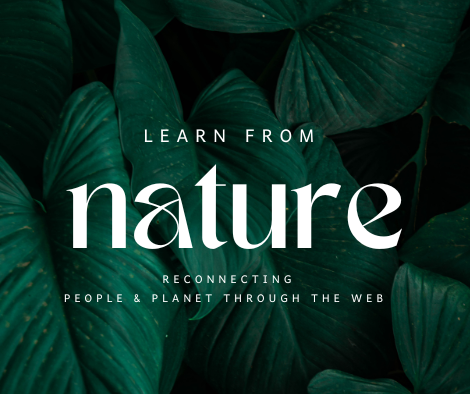
As it’s World Autism Awareness Day – I ask the question
Is Nature & the outdoors important for kids with autism?
Some thoughts
“ Children with autism also benefit from connecting with nature. Through nature, children gain important skills while learning how to care for living things and their environment. Nurture your child’s growth and development by allowing her to explore nature.”
//// Nature as a healer for autistic children
The reason of many symptoms of autistic children is sensory integration, it is the power to understand, organize and feel sensory data from the environment and body. The issues surrounding sensory integration are presented in hyposensitive and hypersensitive a reaction by children with autism to the vestibular, proprioception, tactile, audio, visual, and olfactory senses.
The aim of this paper is establishing a group of guidelines for designing a therapeutic garden for children with Autism Spectrum Disorder to treat the sensory integration problems of children with ASD by designing a sensory garden which should focus on therapeutic interference. By using the elements and principles of design, guidelines for this garden focused on producing calming effects for hyper reactive children with ASD and stimulating effects for hypo reactions.
( source : science direct )
//// Nature and Autism
“Autism is a complex, lifelong condition, which affects how a person understands the world. People with autism share difficulties in social communication, social skills and social imagination, and may have other characteristics such as intense interests and sensory sensitivity. Their condition may affect them in very different ways, for example, some children have severe leaning difficulties with little speech whilst others have above average intelligence.
Most people are aware of the benefits of fresh air and physical exercise, and although we can get these from a run round the local park, it is rewarding to go out into the countryside and to engage with nature. There are many beautiful places in to visit and lots of wildlife to see and experience when walking in the woods for example, or following a nature trail. Children with autism may benefit from new sensory experiences, such as sounds, smell and the touch of plants. The sense of exhilaration that can be felt on a hillside on a windy day is an experience that is wonderful to share and may be a memory which stays with a child for years to come. When children with autism engage with the natural world, they may develop a special interest in birds, animals or plants. There may be opportunities to take part in countryside activities with their school, family or friends, developing social skills and new types of conversations.
Although there is a lot of evidence supporting the benefits of nature and the countryside for the health and well-being of children in general, few studies have been undertaken with children on the autistic spectrum. Autism and Nature’s goals are to learn more about how nature and the countryside benefits children with autism; to raise awareness about the therapeutic value of nature; and to develop practical resources to help children, and those who care for them, to experience the natural world.”
( source: nature & autism
//// The team at Dara Croft report on some very interesting things….
Benefits of Nature Connection for People with an Autistic Spectrum Condition
“There has been comparatively little research into nature-connection and autism, especially compared to that undertaken into how exposure to nature can reduce symptoms of other neurodevelopmental problems such as Attention-Deficit Hyperactivity Disorder (ADHD). Research has shown that children with ADHD who take walks or play in green spaces show more elevated attention and concentration spans that children with ADHD who take walks in built-up environments or predominantly play in indoor settings. There is quite a high co-existence of ADHD and autism and so it seems reasonable to conclude that increased nature connection will be beneficial at least in this scenario.
Many people with autism are also experience either hypersensitivity (over-sensitivity) or hyposensitivity (under-sensitivity) to sensory experiences such as hearing, tasting, smelling, touching and feeling and sights. Taking people with autism who are over-sensitive outside and inviting them to connect with nature through sight, sound and touch can enhance their ability to cope with a wider range of stimuli and reduce their experiences of sensory problems. For those who are under-sensitive, walks in nature with a focus on the sights, sounds and smells or nature can increase their sensory stimulation in these areas. Recent research has proposed that some of the associated sensory processing problems experienced can be attributed to inefficient neural pathways, but by experiencing a variety of different sensory inputs, such as hearing, touching and seeing in a natural environment, these neural pathways can be strengthened. It is worth noting that people with autism may be over-sensitive to some sensory experiences, for example sounds or sights and visual input, but under-sensitive to other sensory experiences, such a touch and feeling.
There is also a lot of research into the beneficial effects of nature-connection on anxiety and depression levels, and as this Mind report describes, over 70% of people with autism experience depression and severe anxiety in comparison to about 25% of the general population who would be likely to develop mental health issues during their lifetime. “
Autistic Children and Nature Connection
One of the more in-depth studies of autism and nature connection showed that when children with autism were regularly engaged in outdoor activities, they experienced improvements in seven key areas: social interaction; communication; behaviour; emotion; cognition; sensory issues; and physical activity. The benefits most frequently encountered were improvements to a child’s emotional state a
Above image from – https://www.lumierechild.com

